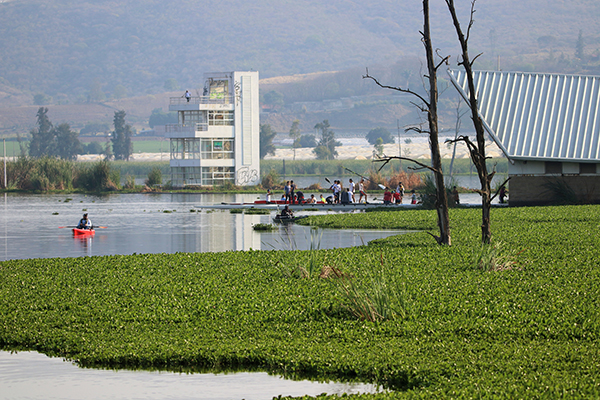MEXICO, NORTH AMERICA
Laguna de Zapotlán
Laguna de Zapotlán, situated in the central western region of Mexico, is a significant lake within the volcanic axis that includes the country's 26 most important lakes. Located in the south of the state of Jalisco, this freshwater lake is part of a closed basin and is 1.497 meters above sea level. With a maximum capacity of 2,7 km³ and an average area of 13,7 km², the lake serves as a crucial water reservoir for the region. The site contains around 50 wells and six freshwater springs, and constitutes a key water reservoir in the region.
What makes it special
The Zapotlan Laguna stands out for hosting a significant number of threatened and endangered species, including the Mexican Long-tongued Bat, the Milk Snake, the Whip Snake and the Mexican Pine Snake.
Protection status
· Ramsar Site 1466, Wetland of International Importance
· Site of Hunting Interest
· Priority Conservation Areas of Region II

Biodiversity
The Lake is an important corridor for migratory birds from North, Central and South America which live in the lake region from November to March. It is an area of refuge for an average of 25.000 waterfowl. Experts found 127 species of birds where four are endemic to the region. Among those with special protection by the Official Mexican Standard are: Least Grebe, Wood Stork and Least Bittern. The emblematic species of the lake is the Black-necked Stilt. In other taxa, little study has been done, however zoologists recorded 40 species of mammals, 13 species of reptiles, 6 of amphibians and 7 of fish. The Zapotlan Laguna stands out for hosting a significant number of threatened and endangered species, including the Mexican Long-tongued Bat, the Milk Snake, the Whip Snake and the Mexican Pine Snake.

Threats
Lake Zapotlán is highly threatened and endangered due to its situation as a closed basin: land use changes strongly in the surroundings. Increasing fruit crops and a settlement of 140.000 people lead to high contamination with gray water and industrial waste of agrochemicals, livestock, forestry, natural waste as well as for volcanic events.

